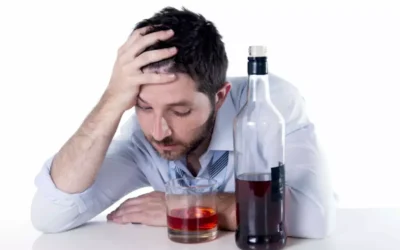More than 2 million people read Texas Tribune articles every month, but only 12,000 of those readers also donate to support the news they count on. If you are one of the 99% of Texas Tribune readers who hasn’t made a donation before in support of independent Texas news, you can change that today. But what Torabi sees now is an opportunity for the pro-cannabis community to be a national leader in treating the plant as a tool for wellness, in whatever form it can be delivered. Texas Original is one of two medical marijuana providers in Texas and serves the vast majority of the patients on the state program, Richardson said.
The bottom line on cannabidiol

This article has been reviewed for accuracy by our peer review team which includes clinicians and medical professionals. Cannabidiol is one of several (probably 200) compounds of the cannabis plant. The literature search was conducted in two electronic databases, MEDLINE and PubMed.
Teens Are Getting Sick From Products With High THC Levels – The New York Times
Teens Are Getting Sick From Products With High THC Levels.
Posted: Thu, 22 Jun 2023 07:00:00 GMT [source]
How is cannabidiol different from marijuana, cannabis, and hemp?
However, one significant safety concern with CBD is that it’s mainly marketed and sold as a supplement not a medication. Currently, the FDA does not regulate the safety and purity of dietary supplements. You can’t know for sure that the product you buy has the active ingredients listed on the label. https://ecosoberhouse.com/ Proper dosages have not been determined and known drug interactions are not part of the labeling requirements. According to a 2017 study published in the Journal of the American Medical Association, of the commercially available CBD products tested, only 30 percent were accurately labeled.
CBD as a Potential New Pharmacological Tool for the Treatment of SUD
Human trials won’t start the second that the DEA makes marijuana’s new status official. Researchers will have to wait for guidance from federal agencies like the FDA and the NIH, says R. Lorraine Collins, the director of the University at Buffalo’s Center for Cannabis and Cannabinoid Research.
The results clearly demonstrated that in absence of the neurogenesis processes CBD does not modulate cocaine consumption and motivation (Luján et al., 2019). Thus, additional studies are warranted to further explore the therapeutic potential of CBD in addictive disorders regarding its pro-neurogenic as well as neuroprotective properties. Our laboratory was the first to publish relevant data regarding the effects of CBD on ethanol reinforcement, motivation, and relapse in C57BL/6J male mice.
- However, the same group demonstrated that CBD (single 800 mg dose) reduced attentional bias after a period of tobacco abstinence without improving craving or withdrawal (Hindocha et al., 2018).
- Some people use the term hemp when referring to cannabis, while others use the term cannabis to refer to varieties of the plant cultivated for non-drug use, such as fiber.
- More studies are needed to clarify the exact mechanisms through which CBD influences addictive behaviors, in addition to the endocannabinoid, glutamatergic, and serotoninergic systems.
- While marijuana use can lead to dependence, the current research suggests that cannabidiol is not addictive.
- The 2018 Farm Bill removed hemp from the legal definition of marijuana in the Controlled Substances Act.
It means that more studies are needed to determine what CBD might treat, when it is best used, and what dosage people should take. In 2018, the FDA approved Epidiolex, a CBD solution, for the treatment of rare, severe forms of epilepsy. There’s no solid proof that using lots of CBD can harm mental health but always talk with a doctor if you’re worried about how it affects you.
- The Hazelden Betty Ford Foundation does not recommend the use of CBD for those in recovery unless it is FDA-approved and in a prescribed form.
- It assists in relieving chronic pains that are caused by numerous diseases among adults.It aids in chemotherapy-induced nausea and multiple sclerosis spasticity symptoms.
- Federal law requires that hemp-derived CBD products contain less than 0.3% of THC.
- Unlike THC, which is another compound found in the cannabis plant, CBD does not have psychoactive effects.
- On the other hand, CBD is not psychoactive and does not appear to be addictive.
- Unlike the other cannabinoid, THC, CBD doesn’t have intoxicating properties, so it won’t get you high in a way that THC in marijuana does.
The information with CBD alone is still insufficient due to the small number of patients in the studies that were carried out to date. Additional clinical trials with more patients and longer treatment periods are warranted to further explore the efficacy and safety of CBD for the treatment of CUD. Interestingly, the results reported by our group in an animal model of spontaneous cannabinoid withdrawal support the implementation of randomized controlled trials (RCT) using only CBD.
Moreover, neither the maintenance nor the extinction phase of SA was modified by CBD. A 2018 preclinical animal study examining topical administration to rats addicted to alcohol and cocaine found that CBD effectively reduced drug use in the subjects. It also dampened the side effect of addiction, such as anxiety and impulsivity. Currently, the only CBD product approved by the Food and is cannabidiol addictive Drug Administration is a prescription oil called Epidiolex. While CBD is being studied as a treatment for a wide range of conditions, including Parkinson’s disease, schizophrenia, diabetes, multiple sclerosis and anxiety, research supporting the drug’s benefits is still limited. Some evidence suggests that CBD may actually be helpful for treating drug addiction and addictive behaviors.
